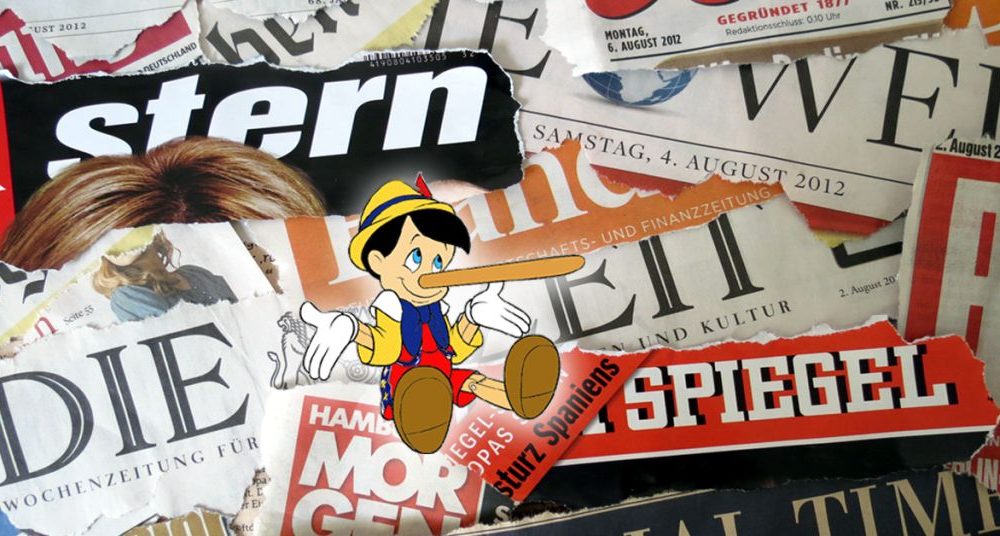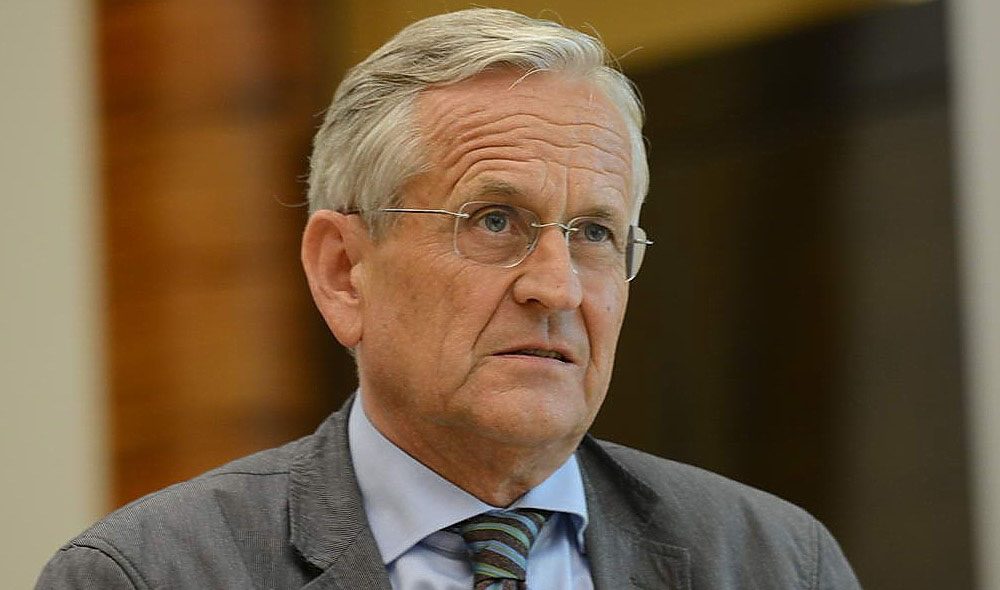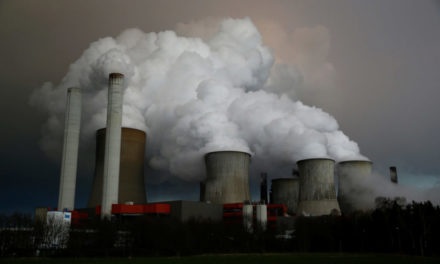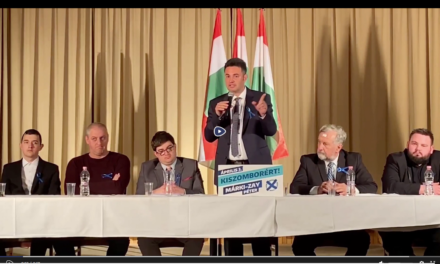Andreas Unterberger is the former editor-in-chief of Die Presse and Wiener Zeitung. He currently edits his own independent online magazine, "das-Tagebuch.at". Andreas Unterbergers Tagebuch is the most read political blog in Austria. The following article was also published there on July 12, – https://www.andreas-unterberger.at/2021/07/die-verteufelung-ungarns-und-die-fakten/ which we are now publishing with the consent of the author.
Where is there more democracy and the rule of law? In Budapest or around Brussels? "What a question!" - this is how the mainstream media and the majority of EU representatives would respond. After all, Hungarian Prime Minister Viktor Orbán has been demonized and portrayed as a dictator for years. Our comparison clearly shows that the facts show the exact opposite.
Yet the hatred against Hungary has escalated to the point that the Dutch Prime Minister has even publicly suggested that the small Central European country leave the EU. Does the Netherlands say that? The low-lying country that, hiding behind high dams, is still considered the European center of drug trafficking and organized crime? Wouldn't it be better to suggest that the Netherlands leave?
In any case, a journalist was shot in the street a few days ago in the Netherlands, not in Hungary, because he got too close to a criminal gang during his research. The Netherlands is where a right-wing politician was murdered, where a film director critical of Islam was killed. In any case, for ideological reasons. There have been political murders in Malta and Slovakia (in each case committed with socialist participation), but not in Hungary, not even remotely similar to these.
Spanish politicians also eagerly join in defaming Hungary. Yet, just a few weeks ago, there were still political prisoners in their country, politicians jailed for years for behavior that would not be considered a crime anywhere else. As local (Catalan) politicians, they organized a referendum, which the central government did not take kindly to. These people wanted nothing more than perhaps too much democracy.
Perhaps Austrian politicians should also think about whether their own country, unlike Hungary, still has a rule of law. Because the activity of a part of the prosecutor's office, which is based on massive ideological foundations, makes this more and more doubtful. The massive increase in migrant crime has clearly reduced the right to safety of the country's citizens, even 13-year-old girls. And it is clearly a failure of politics and justice that, among all EU member states, Austria ranks fourth in terms of migrants staying in the country illegally.

A 13-year-old girl was raped and murdered by illegal migrants in Vienna (Image source: Wild drives)
Western European agitators constantly attack Hungary and dispute whether there is democracy at all. At least there, direct democracy is used to a much greater extent than in our country: the Budapest government regularly asks for the opinion of the population in the framework of a national consultation similar to a referendum.
Of course, this is still a long way from true direct democracy, in which citizens themselves can force a referendum on any law by submitting enough signatures, as in Switzerland. In any case , the Hungarian dialogue model goes much further than any other Western European model of democracy, where a political-media-official ruling elite does not want to give up even a millimeter of power , but, on the contrary, wants to get even more of it.
One is amazed that Western European politicians and media personalities are outraged by a new Hungarian law that prohibits the propagation of homosexuality. They say it is a "shame" and a violation of "European values". This process is becoming more and more unpleasant, what exactly is constantly being pulled out of the drawer as supposed "European values". In the founding decades of the EU, homosexual depictions were prohibited in most countries. And there has never been an official decision that such depictions have now become "European values".
Also, apart from the Convention on Human Rights, which was adopted before the establishment of the EEC/EC/EU, and which has never been amended in this regard, there has never been anything that could be described as a list of ominous "values". Rather, the word "values" has become a completely undefined vocabulary of political campaign propaganda, used arbitrarily to disparage and slander political opponents.
In contrast to politicians and the media, what Viktor Orbán has been doing for years is a commitment to what they themselves interpret as European values. Countless laws passed by him (which have a demonstrable effect on the Hungarian birth rate) support families, i.e. couples with several children. Thanks to other Hungarian laws, the country has the lowest tax rates in Europe. Hungary is the only EU country that specifically helps persecuted Christians living on other continents.
In any case, Viktor Orbán had an unfair move to legally place the paragraphs prohibiting homosexual depictions close to other paragraphs against pedophilia. After all, many of the heterosexuals, directly or indirectly, approach children with bad intentions. Nevertheless, it is a fact that 70 percent of Hungarians think this law is correct. Therefore, the reaction of the EU authorities to the new law will be exaggerated and may be of great electoral help to Orbán.
Orbán knows that a successful politician in a democracy always needs an opponent whose actions make him suitable to play the role of the enemy. György Soros , who supported many pro-immigration and anti-Orbán associations, appeared as such an enemy for a long time, and with his current expressions, the president of the EU Commission may become such an enemy.
The accusation that the Hungarian government is an "enemy of press freedom" is a real treat. It is a fact that there are a lot of Orbán-critical media in Hungary, both electronic and paper-based. Their critical commentaries are also regularly quoted in Western newspapers. The same newspapers that a day later reported the claim of the radical left-wing association "Reporters Without Borders" that freedom of the press had ended in Hungary.
It is certain that opposition newspapers receive fewer advertisements from businesses supporting Orbán. But it is really disgusting hypocrisy when this accusation is also made from Austria without at the same time adding that things are much worse in this country. This is particularly evident in the behavior of the Vienna City Hall, which has financed by far the most anti-corruption ads in recent years. (True, later politicians from all other parties also participated in media bribery, although somewhat more moderately.)
I can confirm this myself. Please allow me to add a short personal note: At the Vienna City Hall, at both newspapers where I was editor-in-chief (Die Presse 1995-2004, Wiener Zeitung 2005-2009), the advertising organizers were almost uniformly told: "As long as Unterberger is the editor-in-chief, they will not receive nothing". (Of course, both newspapers were doing so well in terms of circulation that it didn't matter. Only when Horst Pirker and Werner Faymann got into the right ownership position did I get a pass, for obvious ideological reasons. Evidently to the huge economic disadvantage of both papers).

The German press is completely free... (Montage: PestiSrácok)
Let's return to Hungary! The accusation against Viktor Orbán that he is an enemy of press freedom has become particularly bizarre in recent days: Viktor Orbán summarized his proposals for the once again announced EU reform in seven points, which he wanted to publish as an advertisement in several European newspapers. However, no fewer than 20 European newspapers simply rejected Orbán's ad! This is absolutely outrageous. If only because the refusal of paid advertising is in grotesque contradiction with the fact that almost all newspapers are in a difficult economic situation and demand more and more money from the state budget. It is also grotesque because it goes against the principle of fair information that if we attack someone almost every day, we do not allow him to present his point of view unimpeded at least once, even as a paying advertiser. Without there being any crime in the content.
The ad was not about homosexuality, which is so vehemently supported by the left-liberal mainstream. The ad was about EU reform. It is of course correct that some European newspapers, such as the Austrian "Presse", also accepted the ad. The editorial political commissars were able to put pressure on the management of the once bourgeois paper, because the next day a three-page anti-Hungarian hate and incitement column was placed at the top of the paper.
But it is also false and sickening that two People's Party (ÖVP) MPs on the broadcast of the Austrian public service, ORF, did not deal factually or substantively with Orbán's proposals, but explained that these ads were made "to the detriment of Hungarian taxpayers".
How disgraceful is this accusation! After all, every European government - even the EU itself! – they keep spending a lot of money on self-promotion, one way or another. The accusation of the Austrian representatives is doubly disgraceful. Because the federal government has recently been spending a lot of taxpayer money on large-scale advertisements, including those whose content did not meet the urgent need for information , for example, when it only consisted of the word "thank you".
In terms of the content of Hungary's advertisement, it was about the achievement of further common European economic successes and the admission of Serbia to the EU. At the same time, he clearly rejected migration, the development of the EU into a European superstate, and the hitherto valid objectives of the "ever closer" union. Viktor Orbán wants to give more rights to the national parliaments and in return wants to turn off the EU parliament to a certain extent. Even if one or another detail is certainly worth discussing, there can be no doubt that many Europeans sympathize with Orbán's intentions.
However, it is striking that the ad only demands the inclusion of Serbia, not the inclusion of the other "Western Balkan states", Albania, Kosovo, Bosnia, Macedonia and Montenegro (as Hungary and Austria have so far demanded in similar terms). It is possible that this is a hidden reference to the fact that these member states (except Montenegro) have large Muslim populations who would be EU citizens upon accession. If this fact becomes public knowledge, there is no doubt that the current EU citizens' enthusiasm for EU enlargement, which is not great anyway, will further decrease.
The most aggressive anti-Orbán criticism clearly comes from the MEPs (except for the blues and a part of the blacks). The EP Greens, for example, talk back and forth about "anti-democratic sentiments" and constantly refer to the ominous "core values" that Orbán violates. In this way, another "European value" becomes clear, the overextension of the EU Parliament's powers.
In fact, these representatives scream the loudest by far. And this confirms Orbán's accusation that this parliament only represents his own "institutional interests". Indeed, the European Parliament is trying to gain more and more power for itself, while curtailing the rights of member states, regions and citizens. This is completely contrary to the "subsidiarity" always expressed in their speeches. But what body likes to be accused of being power-hungry and suggested that it propose to lose its power?
The only accusation that Orbán has to accept is that he is illiberal. After all, he himself uses this term again and again to describe his politics. This term is completely confusing. Hungary is the absolute dream country for every true European liberal. The low level of regulation, the low income tax rate and the 9 percent corporate tax rate make it so. The greatest liberal thinkers of the 20th century, from Hayek to Friedman, would light a candle for Hungary every day if they could live to do so.
Then, for heaven's sake, why does Viktor Orbán call his policy "illiberal", which gives it a negative connotation? Simply because he knows and uses the word "liberal" in the American sense of the word, where it is synonymous with "socialist" and the opposite of the European word "liberal". And because no one tells the Hungarian prime minister to avoid this word, which causes such ungodly confusion in the rest of Europe...
Author: Dr. Andreas Unterberger
(Cover image source: mno)













